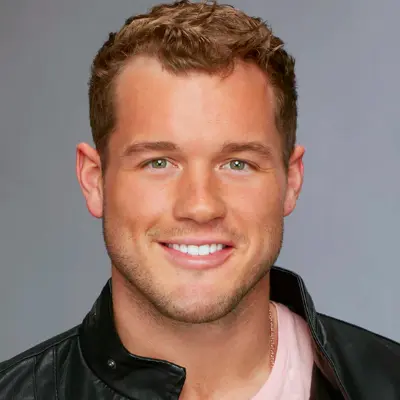ABC touting Colton Underwood as "The Virgin Bachelor" is even more wince-inducing in wake of him coming out as gay
-

In retrospect, Underwood's season that aired in 2019 features scenes that "now play like heterosexual theater, an artificial performance of what Underwood presumes women wanted to hear and do," says Daniel Schroeder. "He wasn’t falling in love with any of the women he pursued. He was falling in love with the idea he’d created in his head of the straight life he thought he was supposed to have. Been there! Except the part about auditioning beards on national television." Schroeder also notes that his interactions with Cassie Randolph also look darker in retrospect. "What a season it was," adds Schroeder. "Colton’s narrative from the beginning of his Bachelordom—and in his stint on Becca’s season of The Bachelorette—centered on his virginity. It was a constant talking point that cropped up in conversations with all of the women he pursued, and even became a way for the show to sell itself. Chris Harrison, the series’ longtime host, teased the season by saying that viewers were in for a dramatic season because Colton 'just might lose something along the way.' Yikes! Indeed, Underwood’s virginity was used by ABC to hook the wide swath of conservative viewers that continue to drive the show’s high ratings, and producers framed his sexual inexperience as a noble quality, rather than a signal that something was a little off. Yes, there are plenty of perfectly normal virginal men in their late 20s, but not many who parlay an NFL gig into a berth in the reality swamp, and The Bachelor—which has long had deeply weird issues with sex—couldn’t get enough. If it all made you a little queasy then, it’s downright hard to watch now, when it’s so clear Underwood became convinced virginity was a way to sell his heterosexuality even to himself. Sometimes the things we say loudest are the things we’re lying about the most, and who among us once-closeted homosexuals hasn’t vocally proclaimed his heterosexuality in front of an entire summer theater program in high school? Underwood simply did his version with 30 women—and, uh, several million viewers."
ALSO:
- ABC's coverage of Colton Underwood's coming out was as messy as his Bachelor season: "Two things can be true about Underwood’s announcement: It is a good thing that he now feels able to embrace his sexuality, and much of his past behavior was bad," says Emily Stewart. "Also bad: The Bachelor’s handling of his relationship with (Cassie) Randolph, not to mention, frankly, GMA’s decision to largely brush over the topic during Underwood’s interview. Underwood told Roberts he is 'sorry for how things ended' with Randolph, adding that he 'messed up' and 'made a lot of bad choices.' He said he was in love with her, which 'only made it harder and more confusing' for him. 'I wish it wouldn’t have happened the way that it did. I wish that I would have been courageous enough to fix myself before I broke anybody else,' he said. But Roberts and GMA, which billed the interview as 'deeply personal,' didn’t press Underwood to further address the issue. As television writer Michael Slezak pointed out on Twitter, she didn’t ask him about 'allegedly inflicting psychological violence' on Randolph, or ask for any further explanations of his treatment of Randolph during filming of The Bachelor and after. Instead, he got off with making a lackluster apology about a serious issue and his very toxic behavior. Underwood apologized for 'misleading' Bachelor viewers and fellow cast members, which pales in comparison in terms of severity to how he treated Randolph; people mislead others about their intentions on reality shows all the time. A perennial question on every season of The Bachelor revolves around who is on the show for 'the right reasons' — namely, who has put their lives on hold to go on TV in hopes of finding true love (as opposed to finding fame or achieving some other personal benefit). Misogynistic behavior from Underwood and The Bachelor toward Randolph in ignoring her clear wishes and desires are a problem. So is excusing Underwood’s actions now that he has revealed he was dealing with his feelings about being gay."
- Cassie Randolph is reportedly "still processing" Underwood coming out: “She was not made aware in advance that he was going to be on GMA doing a tell-all,” a source tells Us Weekly. “To be honest, she hasn’t really had time to navigate how she feels about it yet.”
- The Bachelor creator Mike Fleiss tweets his support for Underwood: "All of us in #BachelorNation are thrilled for you, @colton! Great to see you so happy!!!" he tweeted.
- The Bachelor franchise has a troubled LGBTQ legacy: From Chris Harrison questioning whether there should be a gay Bachelor to former Bachelor Juan Pablo Galavis using "pervert" to describe gay people.
TOPICS: Colton Underwood, ABC, The Bachelor, Good Morning America, Cassie Randolph, Mike Fleiss, LGBTQ, Reality TV
More Colton Underwood on Primetimer:
